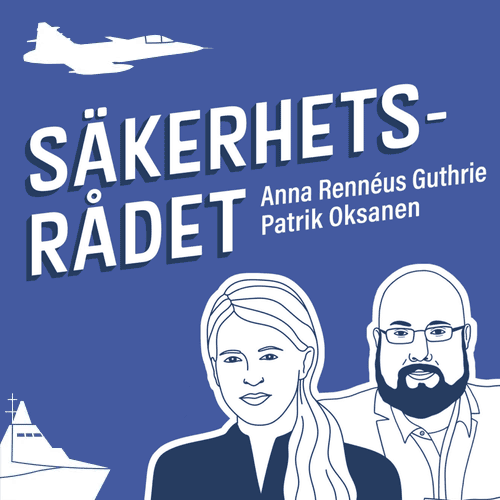This article is part of the Let The World Hear Project, which is a collaboration between Stockholm Free World Forum’s webzine Säkerhetsrådet and a number of Belarusian volunteers. Together we have gathered stories from victims of the dictatorship regime in 2020. The world must know what happened.
Read more about the project here.
This is the story of 20-year-old student from Minsk, Darya Skorokhod. She was detained on 11 august 2020.
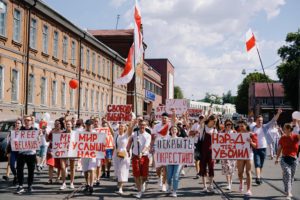
Demonstrations in Minsk. Photo: Artem Podrez/Pexels
The beginning: “I seemed smart as I ran in the other direction.”
The story starts on 11 August, about 4 p.m. We gathered in the office at work and collectively decided to go to our friend’s home, followed by a walk to the centre of Minsk to see what was happening in the city. We had all heard about the protests, but no one could know for sure since the internet had been shut down. We created a group chat to figure out who was coming and when to gather.
At 7:30 p.m. we left the building. We knew that the demonstrations usually started around 8 p.m., but we wanted to walk around in order to understand what was going on in the country as there was no internet. As we walked towards a coworker’s home we noticed a small bus arriving by a park literally next to his house. About 12 people jumped out and headed towards us. It was obvious that they were going for us, we were the only big group around – about 10 people. We got scared and started to run away, because everyone here runs from the OMON, as to not be caught. Nobody knew that we would be caught for this.
We ran in different directions. Many ran to the right, I ran to the left. It seemed logical not to run with the rest of the crowd. They seized four of us; because “I seemed smart as I ran in the other direction”, they thought I was the coordinator and thus had something to hide. They took my boyfriend because “he was tall and muscular”. Another girl was taken because of a white ribbon on her bag. Yet another girl because she is a professional karatist and she was carrying her workout bag with her, containing bandaids and teeth protection. The rest either managed to run away or, as for the underaged girls, were searched but had nothing specific on them and thus were allowed to leave.
We were put on the bus. I immediately asked the reasons for the arrest. They said, “unlock your phones and we will explain”. We refused to do so so they started to threaten us with violence unless we gave them the passwords. On my phone they found a clip of my dog dancing to Victor Tsoy’s song Peremen. A normal, funny video. They said they would take me immediately.
My boyfriend wasn’t even allowed to sit down in the bus – he was immediately laid on the floor. He had also received a text from a friend, warning that there were avtozaks in the city centre. Some of our phones were collected after they found images and videos taken during the protests. They said, “that’s it, we’re taking all of you”.
The bus took us to the avtozak. I didn’t know that there were cages in avtozaks, but there really are 1.5 x 1.5m caged cells in which they would put up to five people. I was with two other girls. They put us all in the wagon, kept us in there for 15 minutes then kicked us out. Apparently it wasn’t even the OMON who had caught us; it was some unknown men in dark clothes who didn’t even state who they were. We were again forced to give the passwords to our phones; they wrote them down and then collected our phones. We don’t know where they are until this day. We returned to the avtozak where we then spent the next five hours: me, two girls and one guy. They said that they would drive around until the avtozak was full of people. So from 7:45 p.m. until midnight we drove around to different protests, collecting people. One guy who lit a cigarette in the avtozak was severely beaten. At one point they thought that we seemed so small and innocent, and that we should be released, but we ended up driving around for five hours until we arrived at the RUVD. At that point I thought that it wouldn’t get any worse and we would be taken to a more civil place; that we would be given a sentence and it would be over, but we were taken to the RUVD.
The stairs of death
They told us to walk up the stairs to the fourth floor of the building. Later we found out that they were called “the stairs of death” because on every other stair there was a person in uniform with a stick meant to beat you as you walked past. Girls are not beaten, only guys. They beat every single part of your body. Sometimes you can jump away, sometimes not. Girls were terribly insulted. They would call us everything, from street whores to revolutionaries to coordinators. While climbing the stairs, I saw guys on the floor being beaten by the police and the OMON. You see the blood, hear the groans, the screams. I didn’t know this could even happen in an administrative building.
They brought us to an auditorium and threw us on the floor. I was then lifted and seated in a chair. We then spent the next 13 hours in the auditorium, sitting in one single position. You had to put your arms in front of you and bow your head down; this was how we had to sit for 13 hours. I was allowed to leave once for a check-up in the middle of the night – I was unlucky, because there was a queue so I had to return. Since I had a pink jacket I was referred to as “Rosey” and that’s now my jail name (smiles).
Between 2 a.m. and 6 a.m. new protestors arrived. They were beaten, some of them almost to death. There was a 20-year-old guy who was there because of a molotov cocktail, but I still think that it’s wrong to almost beat people to death because of something like that. I later found out that he passed away in the Intensive Care Unit the following morning because of a shattered skull.
The OMON acted really inadequately. We were not allowed to look at them, but we could still see that they had awful mood swings. One moment they would brutally beat you and the next moment they would ask you if you were okay. It seemed to be the normal scheme and it was absolutely terrifying. From 2 a.m. until 6 a.m. we were forced to listen to the guys being beaten. Girls were not physically touched, just frightened and insulted.
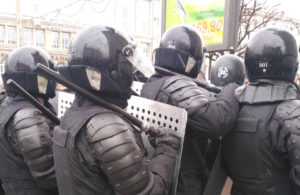
The Belarusian OMON. Photo: Wikimedia
“All right, you girls are probably here by mistake, sign this protocol and leave”
At 8 a.m. it was time for my check-up. I walked into a small room where there were three women. They immediately started to insult me, humiliate me, asking why the fuck they had to work for my sake at 8 in the morning. Being a young and naive 20-year-old, I answered, ”I’ve been here unlawfully since 7 in the evening”. For that I was punched several times and I realized it was better to stay quiet. After that we were recorded on tape, where they explained who I was, why I was here and so on. And then I got to return to the auditorium, without any explanation.
At 1 p.m. they came in and said, “all right, you girls are probably here by mistake. Sign this protocol and leave”. We were not allowed to read the protocol so I said that I was innocent and therefore wouldn’t sign it. Some girls, who were terrified, signed it and were allowed to leave; those few who didn’t had to stay.
At 2 p.m. they said we had to transfer to a different place. But since there were no available avtozaks, they told us to come down to the first floor. We sat on the cold clinker floor, face-down on our knees, waiting for a free avtozak. To my left there was an adult guy who just cried; it seemed like he had broken down mentally by this point.
It’s very difficult to stand on your knees after not being allowed to move for 13 hours. I have problems with my knees – I have reactive arthritis, so at one point I told the OMON that I had had surgery a month before; they replied that they didn’t give a fuck. I understood that it was pointless to claim your rights here. I realized that if I had to stand like this for 2 hours I wouldn’t be able to get up again. Luckily after one hour they allowed us to stand up facing the wall. After that we were put in an avtozak. They didn’t say where we were going, but we didn’t drive for a very long time, so we thought we were still in Minsk.
Our destination turned out to be a jail, though we still didn’t know our exact location. When you looked up you could see the barbed wire. After being forced to stand on our knees for a while, we were put against a wall. In some magical way I ended up next to my boyfriend and we had the opportunity to talk. As a penalty for that, I was forced to do 100 squats and my boyfriend was beaten. After that we were separated to different sides of the fence. We had to stand like that until 6 p.m., when it was court time.
It was difficult to call it a court. We were taken inside the jail, forced to face a wall and wait until the judge called out our name. When I approached the judge she asked, ”do you agree with your accusations?” We all asked, ”what are the accusations?” At most they would state a paragraph, usually revolving around participation in unlawful meetings, but for some reason I was accused of organization just because I had created the group chat for my coworkers. Back in the small bus at the beginning they had asked what the name of the chat Rocket Office meant. It’s the name of our workplace, but they said “no, it is a secret code name for your organization”. It was useless to argue with them. When I approached the judge she named the paragraph and asked: “do you agree?” I said no, unless meeting up with your friends counted as organizing an unlawful demonstration. It was known that those who did not agree with their accusation would be brutally beaten in the night so later I said that I agreed.
After court we were returned to the fence where we had to stand until 10 p.m. The guys were forced to lay on the ground. They were cold and asked if they could get up, which was ignored. At some point they were allowed to do push-ups in order to get warm, but many couldn’t do it as they were hurt from the treatment in the RUVD. I thought the situation couldn’t get any worse. They said we had to wait for our sentence – either 10-15 days in jail or a fine. After a few hours again we were told to go inside and they said everyone had been confined to 72 hours either way, as the court hadn’t yet reached a decision.
I was among 40 girls who were put inside a small concrete enclosure with no roof and just a smelly hole in the ground as a toilet. It was, unlucky for us, a very cold day. They told us we had to spend the night there. We weren’t allowed any water and we hadn’t been fed since we were arrested for the first time. Many girls started to cry. I realized that we had to come up with something and tried to coordinate the girls to stay calm and work out how to spend the night without freezing. We were trying to place our shoes and jackets on the floor so that everyone could lay down. I was lucky enough to have a jacket, some girls only had shorts and t-shirts.
In the enclosure next to ours were housed 80 guys. At 2 a.m. the guys were forced out into the yard and we could hear their groans and screams while being brutally beaten and insulted by the OMON. At 4 a.m. we could hear them sing the national anthem of Belarus. We later found out that they were forced to do it on their knees either half naked or naked. No one slept – we only thought about getting through the night alive and hoping that the guys were okay. I thought my boyfriend might be in there, but some people had their entire families detained – husbands, brothers, sisters. We later found out that they were not “our guys”, but the people who had been arrested the day before.
In the morning they took all 40 of us to a jail cell that was 4 x 4m in size. It was still better than the concrete room with no roof, in which you thought to yourself that you will die soon. I remained there until I was released. We were let out just one time, because they initially planned to transfer us to another place.
Here, the OMON officers were better. They even asked us if we were hungry, to which we replied that we hadn’t eaten since the beginning of the arrest. They gave us six loaves of bread and some hot tea for 40 people to share, and that saved us. In the cell, I drank water for the first time since the arrest, as there was a tap, even though the water was dirty. At around 11:30 a.m. they said we could leave the room and meet the judge. We were made to sign a protocol which stated that we had confessed to our crimes and if we were caught next time we would get 3-7 years jail time. We had no choice but to sign it – it was our only way out. We asked why us girls were being released, and were told that for the past two days The Women in White had been protesting against the violence of the authorities. We were also told about the supposed arrival of [a delegation from] the European Commission who weren’t allowed to cross the border. I think they [the EC] weren’t allowed in, because they hadn’t released everyone from jail yet.
“If you want to leave, then fuck off right now!”
When we were being released we were not given back our personal belongings. When I asked how I would be able to get home without money, phone or house keys – I couldn’t even phone a taxi – they said, “if you want to leave, then fuck off right now!” We were told that if we didn’t immediately run upon release, they would catch us again and we would then face up to 7 years in prison. We knew it was true, because we had just signed the protocols. We didn’t know where to go, it was past midnight and the metro was already closed. But when the gates were opened we were met with applause from thousands of people. I understood then that the people were backing us. I immediately saw my co-workers who had been with us from the beginning, but had managed not to get arrested. Overall, around 30 friends and acquaintances were there for me. Morally, it helped a lot. I was released on Friday night, 14 August. My boyfriend was released seven hours after me. He was “lucky” as on Friday morning they were taken to the therapeutic labour dispensary where they had been fed and even given books at one point.
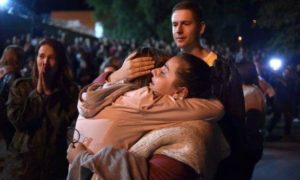
Darya (in pink) upon her release. Photo: private
NC: When you were in the cell, was there any solidarity among the girls? Did you support each other?
In the cell we were allowed to talk. Many girls, after having to go through the whole night listening to groans and screams had mentally broken down. They couldn’t stop crying and others were comforting them. We shared our stories. I thought that I had been arrested for nothing, but then I heard that one girl had been arrested when she was simply walking out of a grocery store with some cheese. They just took her personal belongings and threw her in jail. She was so sweet in her skirt and white shirt. I thought that if they could arrest her, then I was definitely in here for something real. Those stories were just so absurd.
NC: Have you filed a formal complaint?
Yes. My boyfriend also pressed charges for the beatings. We didn’t leave it at this. In jail I was told by some girls that a previously arrested girl had created an Instagram account in order for women in the same situation to connect and file a complaint together. But I think I must have got the name wrong, because I couldn’t find it. Though, I’m in contact with other girls who were there with me, so we will definitely file a mutual complaint.
NC: So you all keep in touch?
Yes, some of us do. They said there is a Telegram chat with literally everyone [that was arrested]. But I couldn’t access it, because I don’t have my phone and I need my passport in order to get a sim card. My boyfriend and I thought about going back and trying to collect our stuff, but then we found out that some guys tried to do that and they were arrested again. Our lawyer said that we should let our parents go instead of us.
NC: What is your boyfriend’s perception of what happened? At some point you were in different jails. Have you discussed your different experiences?
Yes. We were both “lucky”. Yes, he was beaten but not that harshly and they didn’t have those nightly terrors. He was beaten in the RUVD, but so was everyone, and in between changing of avtozaks. We basically have more or less the same experiences and emotions. I was really worried for him because we weren’t told anything. He said he had a great time in jail (laughs). He talked to some guys and even managed to find an IT guy for his start-up. He claims that he hasn’t had so many adequate people around him for a long time.
NC: What moment was the hardest for you?
From the beginning, I tried to tell the girls around me that everything would be okay, because I myself believed that. But when we ended up in the concrete enclosure and were told to spend the night there while at the same time talking about those 72 hours, I thought that I wouldn’t be able to make it through physically without food, water or sleep. Emotionally, it was that moment when I thought that no, it will not be okay. I couldn’t even fathom that things like this happen. The brutality, to sit through the night and listen to the groans and the national anthem … it was hard.
NC: When you were in the concrete enclosure, were you allowed to leave at all? For bathroom breaks?
The toilet was just that hole in the ground. We weren’t brought water, nothing. When we asked what would happen if it started to rain, they just answered, ”you will drown”. After that they didn’t even come back to check on us.
NC: The girls were not beaten at all?
Well, it depended on whose hands you ended up in. When I was in the cell I was told that there was a blonde woman that I should be careful of. There was a girl who had been beaten in the avtozak. She had simply asked the OMON how to find her way home. They brought her to the avtozak where they drew on her face and beat her. Apparently they drew on the supposedly violent ones.
NC: What did they draw?
A star or an anarchy A or something. But they would draw whatever. They drew a plus sign on my boyfriend. On another guy they drew a bicycle. He was the singer in a band and when he told that to the OMON they just laughed and beat him extra hard. They just seemed to be bored, to be honest. That girl I mentioned had been brutally beaten. So my boyfriend and I were lucky.
NC: Did you receive medical assistance? Did they take someone who was feeling bad out of the room?
Before the court there was a paramedic who examined us. There were people who were in bad physical shape, some had their knees bent, but they didn’t receive any medical assistance, just brought to the side for a short examination and then they just had to stand up for hours and hours like the rest of us. At one point a girl fainted, but they just told us that there are no doctors.
NC: They didn’t allow any doctors in jail?
Some people asked for lawyers, some asked for doctors. They just swore at us, saying “well, you’re in the wrong place”.
NC: When were you able to speak to a lawyer?
My workplace arranged lawyers for all of us. I saw her for the first time when I got out and I was then able to speak to her. In jail, they allowed one lawyer in and it was for some foreign guy. The rest of us were told, “what lawyers? You don’t even have any rights!” We asked a few times but they just laughed in our faces.
NC: As a whole, from a sort of moral perspective, did you gain anything positive from this experience?
I understood a lot of things. First of all that I’m stupid and naive (laughs). I couldn’t fathom stuff like this existed. I felt stupid because we had created all those group chats. But on a positive note … you know, I was raised in a strict way and it actually helped me in jail, meaning that there were no tears or shock; instead I immediately tried to coordinate my actions and do something useful. I got to know many good people that are probably hard to find otherwise. I understood that I have endurance, that I’ll be alright in these situations. Though, morally, I’ve probably aged 10 years. So yeah, that kind of experience, surviving in tough conditions – I’ve revealed new qualities about myself that I didn’t even know I had.
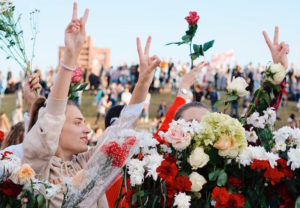
Women protesting. Photo: Artem Podrez/Pexels
NC: Have you returned to the demonstrations?
I really wanted to and I planned to go with my family. But I’m currently risking jail time if I get caught again. So my parents told me to stay at home while they went. But really, they haven’t broken me down to a point where I wouldn’t go to a meeting. I still want change. One of the most popular questions they would ask you in the RUVD was, “You want change? Here!” and then they would beat you. I think that most girls [who were in the cell with me] begged their loved ones not to go out into the streets. But they didn’t manage to change my mind. We are definitely not leaving things as they currently are.
NC: Regarding your case. I understood that you have filed a complaint. What are the long term actions from your side?
We found out that we had been sentenced to ten days in jail only after we were released. Before that we didn’t know anything, the judge hadn’t said anything. We have filed a complaint stating that we don’t agree with this sentence. As we understand, they have to send us a formal statement outlining what they believe and so on, but according to the protocol that we were forced to sign, if we are arrested again, these ten days would be added to a sentence of 3-7 years. I was in for three days this time, so next time it could be seven years and seven days. This means that while they won’t take action right now, the days can be added on at any given moment.
NC: And this ordinance, it has no set expiration date, or…?
It seems like that, but once again, we weren’t told anything.
NC: And the lawyer doesn’t say anything?
According to the lawyer, we should write complaints and see what happens. But yes, she said that if they arrest me again, as of right now, it would be 3-7 years plus seven days. But we’re doing everything we can in order to correct this. To be honest, I don’t want to be on the register, because I could be forced to leave my university. At least they said so in the RUVD. I called the [university] administration and they told me to await an official statement.
NC: Where do you study?
The Belarusian State Economic University. I’ve just started my third semester in budgeting. Today [17 August] the rector released a statement, saying that no one would be forced to leave and that there will be moral and financial support for those who suffered. So hopefully I’m still a student.
I believe that people must know what’s going on. For me these events were a shock – I had no idea stuff like this could even happen. I would like as many people as possible to know, as well as understand that we are fighting.
NC: In all fairness, the scariest part wasn’t the bullets or the grenades, even though many people were hurt by them. That part was expected. But what was happening in the RUVD and in jail, the torture and the humiliation, that’s what’s terrifying. Many people don’t understand. When you speak to Swedes they’re like, “but everything is all right over there, isn’t it? They are releasing people, right?”. And you’re like, “well they released 500 people on the first night and when it comes to the other 6500 people we still don’t know”.
I think that most people were released first and foremost because of the women protesting all across the country; secondly because of the supposed arrival of the European Commission; and lastly because they turned the internet back on and all these videos started to circulate online. They understood that the people wouldn’t leave it like that.
NC: There are countries who are starting to give more active support. Lithuania is doing a lot right now. I’m not calling for anything, but if there would be a threat…
If there is no power shift we will definitely apply for political asylum in other countries. We still believe that Tsikhanouskaya will be able to do what she is doing. And that everything will be alright.
The story was originally told in Russian to Nadia C. and translated by Margareta Barabash.
